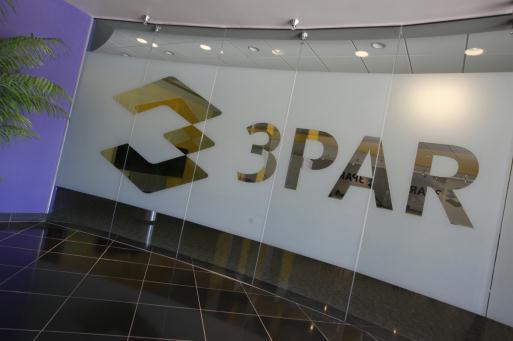Bangalore, October 29: Last week, when IT giant Dell launched its storage-focused R&D centre in Bangalore — one of six such facilities worldwide — it plugged a key gap in its presence in India. It already had a facility in Chennai, dedicated to the development of networking solutions, and its Bangalore facility was already developing servers.
“Storage was the missing gap in our capability in India,” says Alan Atkinson, Vice-President/General Manager, Dell Storage.
Servers and storage, in particular, are starting to move “closer together”, Mr. Atkinson told The Hindu. This is part of an overall global industry trend, especially in the “high-end low-latency end of the server business,” he says. The Bangalore facility is part of the company’s focus on harnessing the development of storage, servers and networking to offer “convergent solutions” for business enterprises.
“Dell is targeting both the high-end and the lower end of the server market,” says Mr. Atkinson. “We intend to reach out to the niche as well as the general-purpose segments,” he adds. Dell, he says, has invested $35 million to 40 million in the last 10 to 12 years in R&D at its Bangalore facility, which employs 27,000 personnel. Dell employs more than 5,000 people at its design centres across the world.
Mr. Atkinson refused to say how many personnel will be employed at the new facility but said it will draw on personnel already employed in India. Dell’s R&D teams are working very closely, says Mr. Atkinson. For instance, the group in Austin, Texas, is working closely on joint projects with the group in Bangalore to develop new high-end products.
The groups in India and the U.S. jointly developed Dell’s recent offering, the ‘Fluid Cache’ servers with NAND Flash. These servers, based on solid state drives, are equipped with specific software capabilities made possible by the acquisition of RNA Networks by Dell in 2011. The software, designed as an “application accelerator” enables the creation of a high-speed caching pool to facilitate quicker reading and writing of data from solid state drives on its high-end servers. The layer of software on the device replicates the data on cache, which enables much faster data throughput.
Mr. Atkinson says Dell India’s “significant presence” in Bangalore makes it an ideal choice for drawing talent for coordination with the storage end of the business. Dell, he says, has a “very aggressive product roadmap in the days ahead”.
Between August 2013 and March 2014, Dell plans nine major product launches, of which three have already happened.
“We already have the infrastructure and the talent and it makes sense for us to tap into our Indian footprint,” Mr. Atkinson says. “It (the India operations) clearly gives us another way to accelerate growth.”
A greater role
Software is playing an ever greater role in the server, networking and storage businesses, observes Mr. Atkinson. The proliferation of software-defined storage and software-defined infrastructure such as data centres illustrates the growing use of software to make hardware in ways that enable a boost in efficiency and reduction of latency. Needless to say, all the software for these run on servers. “This is a fairly emerging area and it is also an exciting area,” says Mr. Atkinson. Not only Dell, but many of the other companies in the space have been investing heavily in this space, he says.
‘Single solution’
“We are disrupting the economics of the data centre by leveraging our presence in storage, server and networking to develop products that are targeted at the high-end of the market (high performance, low latency), while retaining our attention on the relatively lower end (high capacity, dense capacity) of the market,” says Mr. Atkinson. “It is the software that ties all this into a single solution, he points out.
But boosting server capability is only one aspect of all this. At the storage end too, locating the storage modules right inside the server in order to ensure high-end performance and reduce latency is boosting capability. “You can imagine this as being very fast and being very close to the processor,” remarks Mr. Atkinson. Dell, he says, is aiming to take these “somewhat niche solutions mainstream”.
Pete Korce, Vice-President and General Manager, Dell Storage, says: “Most people imagine hard drives when they talk of storage, but at Dell, 90 per cent of our people are doing software development.”

